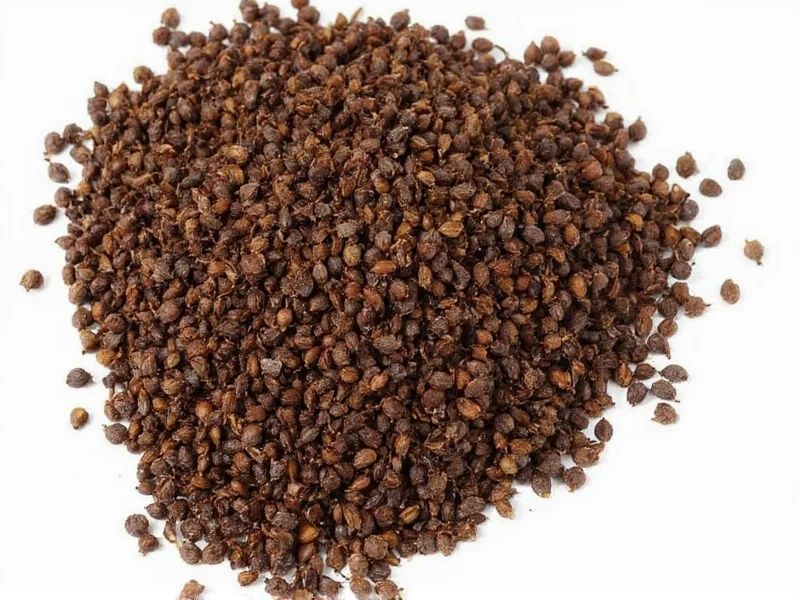Understanding how to properly substitute ground cloves for whole cloves is essential for home cooks who find themselves without the exact form called for in a recipe. While both come from the same spice, their physical forms create important differences in flavor release, measurement, and application that affect your final dish.
Understanding Clove Forms and Their Properties
Whole cloves are the dried, unopened flower buds of the Syzygium aromaticum tree. These small, nail-shaped spices contain concentrated essential oils that provide their distinctive warm, sweet, and slightly peppery flavor. When used whole, they slowly infuse dishes with flavor over time, making them ideal for simmering recipes like mulled wine, stews, and braises.
Ground cloves, meanwhile, are simply whole cloves that have been pulverized into a fine powder. This process exposes more surface area of the spice, causing the volatile oils to release more quickly and completely. As a result, ground cloves deliver more immediate and intense flavor compared to their whole counterparts.
Precise Clove Substitution Guidelines
The standard conversion ratio for substituting ground cloves for whole cloves is straightforward but requires attention to detail:
| Whole Cloves | Ground Cloves Equivalent | Best For |
|---|---|---|
| 1 whole clove | 1/4 teaspoon | Most baking and cooking applications |
| 4 whole cloves | 1 teaspoon | Recipes requiring multiple cloves |
| 12 whole cloves | 1 tablespoon | Larger batch recipes |
This ground cloves to whole cloves conversion works reliably across most recipes, but you should consider several factors that might require slight adjustments:
Cooking Method Considerations
- Long-simmering dishes (stews, soups, mulled beverages): Reduce ground cloves by 10-15% since they release flavor immediately rather than gradually
- Baking applications (cakes, cookies, breads): Use the standard 1:1/4 ratio as written, as baking time is relatively short
- Rub applications (meat rubs, spice blends): Ground cloves work better than whole in dry rubs since they distribute more evenly
- Pickling and preserving: Whole cloves are preferable as they can be easily removed, but if substituting ground, use 20% less
Flavor Impact of Clove Substitutions
When substituting ground cloves for whole cloves, recognize that you're not just changing measurements—you're altering how the spice interacts with your recipe. Whole cloves release their flavor slowly during cooking, creating a more subtle, rounded spice note. Ground cloves deliver their full flavor immediately, which can sometimes result in a sharper, more intense clove presence.
For recipes where cloves play a supporting role among other spices (like pumpkin pie spice or garam masala), the substitution typically works without noticeable difference. However, in recipes where cloves are a featured flavor component, you might want to reduce the ground cloves by 10-15% to prevent overpowering the dish.
Measurement Tips for Accurate Substitutions
Measuring small quantities of ground spices accurately can be challenging. When substituting ground cloves for whole cloves in recipes calling for just one or two cloves, follow these practical tips:
- Use a proper 1/4 teaspoon measure rather than estimating
- Level off the measurement with a straight edge for precision
- For recipes calling for a single clove, measure 1/4 teaspoon ground cloves directly into your mixing bowl
- When in doubt between 1/4 and 1/2 teaspoon, start with less—you can always add more flavor but can't remove it
Storage and Freshness Factors
The freshness of your cloves significantly impacts substitution effectiveness. Whole cloves retain their potency for up to 2 years when stored properly in an airtight container away from light and heat. Ground cloves lose their flavor more quickly, typically within 6-12 months.
If your ground cloves have been sitting in your spice cabinet for more than a year, you might need to increase the substitution amount slightly (by about 20%) to achieve equivalent flavor. Always check spice freshness by smelling them—fresh cloves should have a strong, sweet, spicy aroma.
When Substitutions Work Best
Clove substitutions work most successfully in these cooking scenarios:
- Baked goods where spices are fully incorporated
- Sauces and gravies that will be strained before serving
- Spice blends and rubs
- Recipes where cloves are one of several spices
Avoid substituting ground for whole cloves in recipes where:
- You need to remove the cloves after cooking (like in a pot roast or mulled wine)
- The visual presentation matters (whole cloves can be attractive in certain dishes)
- You're making a dish that requires precise control over spice infusion
Practical Recipe Examples
Here's how the ground cloves to whole cloves conversion works in real recipes:
- Pumpkin pie: If a recipe calls for 8 whole cloves in the spice mix, use 2 teaspoons ground cloves instead
- Mulled wine: For 12 whole cloves, use 3 teaspoons (1 tablespoon) ground cloves, but add it early in the simmering process
- Beef stew: When a recipe specifies 6 whole cloves, substitute with 1 1/2 teaspoons ground cloves added with other dried spices
- Spice cake: For 4 whole cloves called for in the recipe, use exactly 1 teaspoon ground cloves











 浙公网安备
33010002000092号
浙公网安备
33010002000092号 浙B2-20120091-4
浙B2-20120091-4